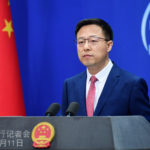The U.S. Inspector General for Afghanistan Reconstruction (SIGAR) in a report published on Jan. 14 says that since the collapse of the Taliban regime in 2001, cash smuggling out of Afghanistan’s international air and land ports has been a concern for the Afghan government, the United States, and the international community. This latest reports details the specific means by which some smuggling is accomplished at the Kabul airport.
A U.S. watchdog has reported that at Hamid Karzai International Airport in Kabul, non-VIP passengers go through five checkpoints and six inspection sites, while very important people (VIP) or commercially important person (CIP) passengers are screened only once and VVIPs are not screened at all.
The report says that the principal difference between the screening processes for non-VIP and VIP/VVIP passengers is the level of screening and scrutiny. Vehicles transport a VIP passenger directly to the VIP terminal, bypassing the first four checkpoints/inspection sites, the report says.
The VIP terminal also lacks most of the additional stages in the security process that a traveler in the non-VIP passenger terminal must clear prior to boarding, the report says.
According to the report, VVIP passengers bypass all security procedures and their vehicles are cleared to drop them directly near their planes on the tarmac.
Additionally, the report says, the VIP terminal does not have a customs office, cash counting machines, or customs declaration forms. Inspectors found no signs or notices to passengers outlining the cash declaration requirements, nor thresholds or export limits.
The official accompanying the inspectors stated that if a VIP/VVIP carries more than $10,000 (but below the $20,000 export limit), their staff would take the money to the non-VIP terminal, have the money counted, and then bring a declaration form to the VIP/VVIP to fill out. We could not confirm whether customs procedures and declarations thresholds are enforced at the VIP terminal, the report says.
SIGAR finds that the cash counting machines had been installed but are not in regular use or connected to the Internet.
Two were in the non-VIP passengers’ departure area, and a third was near the non-VIP passengers’ arrival entrance, the report says.
There were no cash counting machines in the VIP terminal, the report says, adding that one of the Afghan officials present during our inspection said there have been a few instances of VIP/VVIPs transporting large amounts of cash out of the country, but “it rarely happens… as they are high officials and prestigious businessmen,” implying that they do not engage in cash smuggling.
However, in August 2020, staff in the customs office reported to SIGAR that a member of Parliament in the VIP terminal tried to smuggle around 200,000 Euros (approximate value of $238,000) in cash out of the airport.
Inspectors confirmed that the cash-counting machine in the passenger arrival entrance works.
However, they could not test the two machines in the departure area because airport customs staff there did not know how to operate them.
Therefore, the only working cash counting machine is in the arrival entrance, instead of the departure area where strict cash controls are most needed to prevent cash smuggling.
Despite efforts by the Afghan government to reduce the flow of cash out of the country’s busiest international airport, significant control weaknesses continue to exist.
To improve screening procedures at Hamid Karzai International Airport, SIGAR suggests the Afghan government consider taking the following two actions: Fully integrate cash counting machines with functioning Internet capability, and strengthen controls at the VIP terminal by requiring all VIP and VVIP passengers to fill out customs declaration forms, and have airport staff count any cash declared and send serial numbers to FinTRACA.
Background
A 2011 Congressional Research Service study estimated that up to $4.5 billion was smuggled out of the country in a single year. According to a 2015 study by Integrity Watch Afghanistan, 65 percent of all cash leaving Afghanistan was “illegally earned, transferred” or used.
A significant portion of that cash is tied to the opium trade, of which Afghanistan produced 84 percent of the world’s supply from 2015 to 2020, the report says.
Up to 85 percent of this poppy production occurs in areas controlled or influenced by the Taliban, and the drug trade finances as much as half of the group’s activities in Afghanistan.
To track serial numbers of cash going in and out of Afghanistan’s busiest airport, the US government installed cash counting machines at the Hamid Karzai International Airport in 2011.
The following year, SIGAR reported that customs officials rarely used the machines, and did not record and send serial number data to the proper Afghan authorities.
SIGAR also reported that senior government officials and other individuals with political influence, designated by the president’s office as very important persons (VIP), were exempted from the customs process.
The Ministry of Interior Affairs in response said that some individuals have been arrested on charges of attempting to smuggle money through the airport.
“This issue is serious for us. We will conduct our assessments in this respect. Any attempt to smuggle money through the (Hamid Karzai) airport in Kabul will be prevented,” said the ministry.













